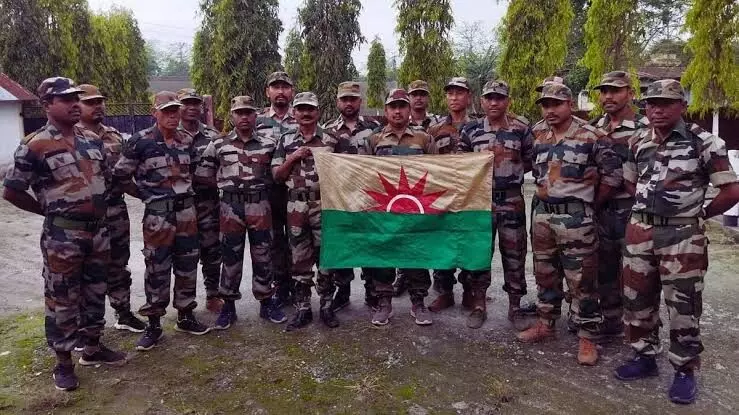Death of a dream.....the decline and fall of ULFA

Operation Sindoor, though primarily aimed at Pakistan-based terrorists, also signaled a stern warning to other ethnic armed organizations in Northeast India, particularly ULFA (United Liberation Front of Asom - Independent). The message was clear: any armed activity would be dealt with military force.
Mr. P.B. is known as an intellectual, and diplomacy always recognizes intellect. ULFA-I continues to advocate for non-violence, albeit under the shadow of guns.
To some extent, ULFA was successful in drawing national and international attention to the issues of Assamese identity, political marginalization, economic exploitation, and the collective hopes and fears of the Assamese sub-national consciousness. The concerns were legitimate. However, the leadership — largely uneducated, inexperienced, adamant, corrupt, and unfit to lead an armed resistance against the state — gradually lost credibility. Over time, the state machinery managed to weaken, fragment, and ultimately domesticate the movement.
What was once a powerful symbol of Assamese sub-nationalism in the Brahmaputra Valley has now splintered into three factions: the pro-talks or surrendered ULFA, the ceasefire ULFA, and ULFA (Independent) led by Paresh Baruah, which operates with limited strength and without the ideological essence it once held.
The issues raised by ULFA, which once resonated as the voice of the Assamese people, remain largely unresolved. These issues have now been co-opted and diluted by mainstream political parties for electoral gains.
Mr. Paresh Baruah, with alleged support from anti-India elements, is trying his best to regroup and reassert ULFA-I’s relevance in the political arena of Assam. However, the present-day political, economic, cultural, and demographic realities are drastically different from those of April 7, 1979 — the day ULFA was formed.
What options remain for Paresh Baruah?
Negotiation?
Mr. Golap Baruah has publicly advocated for initiating dialogue with Paresh Baruah. A well-structured backchannel negotiation could be a viable option.
Surrender?
According to Mr. Golap Baruah, who has significant experience in Assam's armed struggle, surrender is not a path Paresh Baruah is likely to take.
Spending his final years in no man’s land?
As he approaches his 70s, Mr. Paresh Baruah is seasoned in international arms dealings, geopolitics, and the art of power negotiation. He could potentially channel these experiences into a different occupation.
History has shown that without understanding the true character of the state, those who attempt to lead movements based solely on emotion or sentiment often end up playing the role of a tragic clown in the larger political theatre.
